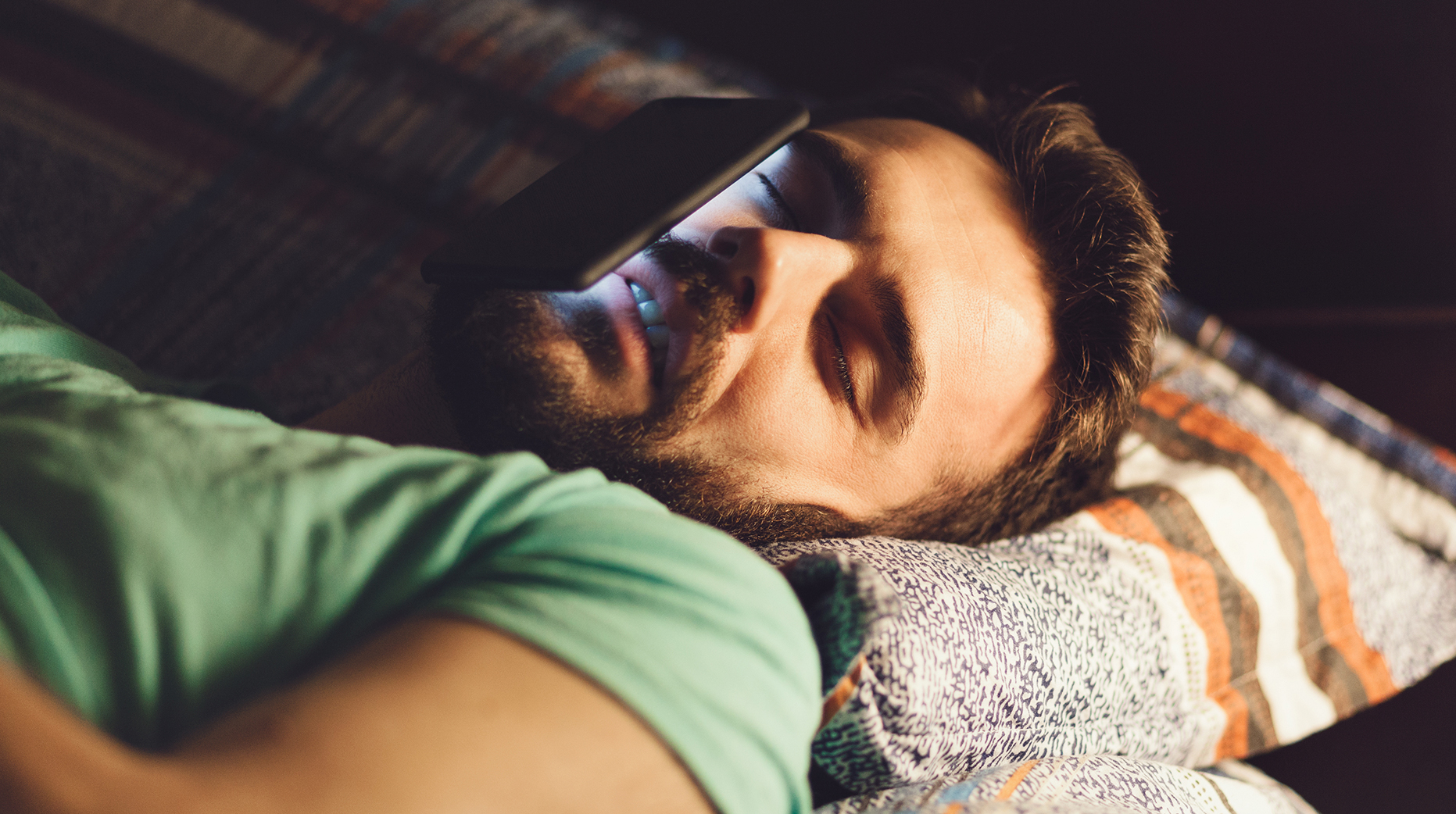
It’s difficult for many to remember a time when hand-held devices like tablets, cell phones, or e-readers weren’t readily available. Depending on the generation, some younger people may NEVER recall that time because, for them, it never existed. But these devices can form an addiction for some, and using them before bedtime can have a dramatic impact on sleep
and restfulness.
If you have enough years under your belt, think back to the late eighties or early nineties. Practically no one had any kind of small electronic device. While personal computers were pretty common, laptops were still costly, and there was no such thing as a smartphone.
What did you do before bed? Maybe watch the late news or a late-night talk show? Read a book with a lamp? Converse with the people or critters that you lived with? Our bedtime routines have changed significantly as electronic devices have become more and more popular. But what effect can these have on our sleep?
A recent study that examined children explored the impacts of bedtime electronic use on sleep quality, sleep quantity and body mass index. Sleep is required for optimum health and behavior, and the effects of reduced sleep impact children especially hard. Not surprisingly, researchers found that children who used devices near bedtime or in the middle of the night suffered from reduced sleep quality and quantity. These children were also more likely to have an increased body mass index (Fuller, 2017).
After you shower, or brush your teeth, or set up your coffeepot for the morning, what do you do next? Do you lay in bed and browse Facebook? Or try to catch up on those last few emails? Or play online games on your tablet? If you’re using a device in bed, you are negatively impacting your sleep, which will lead to poor performance and mental readiness.
We are such stuff as dreams are made on, and our little life is rounded with a sleep.
William Shakespeare
So what can this mean for your leadership skills? Unfortunately, you are only as good as the rest you get. A leader who is not in the highest of mental fitness will be unable to succeed. Neuroscience is giving us clues to how sleep can impact our brains and bodies, and the results of poor sleep or too little sleep aren’t pretty.
Just as an Olympic athlete must train, you have to train your brain. This includes giving it time to recharge and rest. If you are always tired, your ability to think on your feet will lessen, and you will resort to survival thinking, or just trying to ‘make it’ through each day.
A mentally fit brain looks a lot different than the mind of someone who is anxious, tired and stressed out. You can increase your mental readiness by boosting your confidence and the ability to focus, and learn how to visualize and plan for your future.
Citation:
Fuller, C., Lehman, E., Hicks, S., Novick, M. B. (2017). Bedtime Use of Technology and Associated Sleep Problems in Children. Global Pediatric Health, 4, 2333794X17736972. http://doi.org/10.1177/2333794X17736972
These Stories on Performance

Founder & CEO
About my Brain Institute
Scientist, educator, author, speaker, coach, award-winning leadership specialist, filmmaker and creator of the i4 Neuroleader Model & Methodology.
Silvia's scientific background and curiosity about the human brain led her to a decade long journey of research into optimal brain functioning and the application of neuroscience in leadership and daily life. Her past and current roles have uniquely prepared her for the current undertaking, that of leadership activist & change agent.
Silvia Damiano founded The About my Brain Institute in 2009, with the purpose of democratising leadership & neuroscience. She has a passionately held belief, that leaders in our 21st century global economy and their organisations must radically change long-held ideas of what constitutes effective leadership
In her ground-breaking books ‘Leadership is Upside Down’, ‘Brain-Friendly Leadership’ and the 2018 documentary ‘Make Me A Leader’, Silvia provides both compelling evidence and explores the importance of leadership in our personal and professional lives and what it takes to develop the human behind the leader.
Silvia has worked in different countries, across many industries, helping teams and organisations improve business performance. Silvia’s clients have described her as a passionate, dynamic, a highly experienced speaker and master facilitator on the topics of Emotional Intelligence, Cultural Change, Neuroleadership & Engagement.
Silvia is passionate about leaving a legacy of well-rounded leaders who can act and decide in a way that better serves humanity. Her clients include Microsoft, Australian Stock Exchange, NSW Government, VISA, Fuji Xerox and Manpower amongst many other global companies.
Monday to Friday
9:00am - 5:00pm (AEST)
Sydney, Australia
We reply within 48 hours!
General Business Enquiries:
hello@aboutmybrain.com
Technical Support:
support@aboutmybrain.com
No Comments Yet
Let us know what you think